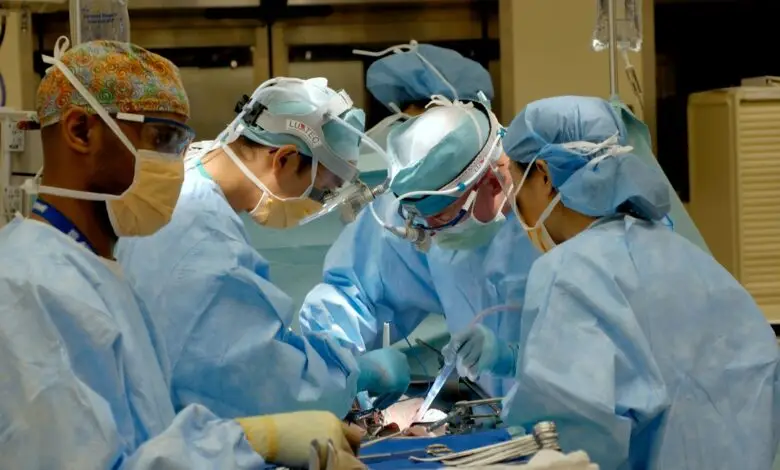How to Prepare for Surgery: A Step-by-Step Guide

The hospital arrival alone does not constitute surgical preparation. A properly designed preparation routine decreases complications while making anxiety easier to manage and shortens the recovery process. Your surgery experience, along with its outcome, will benefit significantly when you follow the right steps ahead of your procedure, regardless of its type.
The detailed guidelines, which include physical, mental, and practical preparation instructions, help patients prepare for surgery according to the best clinical advice.
1. Understand the Surgery and Its Risks
Learning about the upcoming surgical procedure stands as the essential starting point. The process of preparing your mind becomes feasible when you grasp what will happen during the procedure. After your pre-operative consultation with the surgeon, you should obtain an explanation regarding:
- The main purpose of the surgery relates to what goal function?
- What serious hazards or secondary adverse effects exist?
- The procedure and recovery duration should also be established.
- The procedure has other surgical choices.
The process requires you to write down every response from the medical professionals while feeling comfortable getting another specialist’s input if necessary.
2. Preoperative Medical Assessment
Most patients undergo a preoperative assessment days or weeks before surgery. The medical team will:
-
Review your medical history and current medications
-
Conduct lab tests (e.g., blood work, EKG, X-rays)
-
Evaluate anesthesia risks
-
Assess existing health conditions (e.g., diabetes, high blood pressure)
Be transparent about any allergies, previous surgeries, or adverse reactions to anesthesia. These details are critical to ensure your safety.
3. Medication and Supplement Management
During consultation, your surgeon examines all medications you take to both protect your surgery outcome and avoid harmful drug combinations. Understand the modifications made to medications with the following table:
| Medication Type | Action Required Before Surgery | When to Stop |
|---|---|---|
| Blood thinners (e.g., warfarin, aspirin) | Stop to prevent excessive bleeding | 5–7 days before surgery |
| Herbal supplements (e.g., ginseng, ginkgo, fish oil) | Can affect bleeding and anesthesia response | 1–2 weeks before surgery |
| Diabetes medications | May need dose adjustment due to fasting or anesthesia | On instructions from the doctor |
| Blood pressure medications | Some may need to be continued; others may be paused | Case-by-case basis |
| NSAIDs (e.g., ibuprofen) | Increase bleeding risk | 3–5 days before surgery |
Important: Never stop or change any medication without your doctor’s explicit advice.
4. Optimize Your Physical Health
A healthy body is more resilient during surgery and heals faster afterward. Here’s how to prepare physically:
-
Eat Nutrient-Dense Foods: Focus on protein (such as chicken, fish, and legumes), vitamin C (found in citrus and peppers), and iron (found in leafy greens and red meat).
-
Stay Hydrated: Drink plenty of water in the days leading up to surgery.
-
Stop Smoking and Alcohol: Smoking impairs oxygen flow and slows healing; alcohol increases bleeding and anesthesia risks. Quit at least 2–4 weeks before surgery.
-
Stay Active: Engage in moderate exercise, such as walking, to improve circulation and muscle tone.
5. Follow Fasting Guidelines
You’ll be asked to fast before surgery to reduce the risk of aspiration during anesthesia. Typically:
-
No solid food: 6–8 hours before surgery
-
Clear liquids only: Up to 2 hours before (unless instructed otherwise)
Clear liquids include water, plain tea, and electrolyte drinks. Avoid dairy, juice with pulp, and alcohol.
6. Prepare for Hospital Admission
Whether your surgery is outpatient or requires a hospital stay, organize in advance:
-
Pack essentials: ID, insurance card, medication list, loose clothing, charger
-
Avoid valuables: Leave jewelry and electronics at home
-
Bring a contact: Have someone available to drive you home and assist you afterward
If you’ll stay overnight, check hospital policies for visitors, Wi-Fi access, and personal items.
7. Plan for Postoperative Recovery
Set up your home environment before surgery to make recovery easier:
-
Prepare a clean, quiet rest area with pillows and blankets
-
Stock up on easy-to-prepare meals, water, and personal hygiene items
-
Arrange transportation, childcare, or pet care if necessary
-
Have ice packs, over-the-counter pain relievers, and medical supplies ready (if approved by your doctor)
Also, confirm time off work and any temporary activity restrictions (e.g., no lifting, no driving).
8. Address Your Mental and Emotional Well-being
Mental readiness is just as important as physical preparation. If you feel anxious:
-
Practice deep breathing or meditation
-
Join a pre-surgery education session (offered by many hospitals)
-
Talk openly with your doctor or a therapist
-
Write down your questions or fears for discussion
Anxiety can affect your vital signs during surgery and make recovery more difficult. Proactively managing stress contributes to a smoother experience.
9. Day of Surgery: Final Checklist
Here’s what to keep in mind on the day of your procedure:
-
Arrive on time
-
Shower with antibacterial soap (if instructed)
-
Do not wear makeup, nail polish, lotions, or contact lenses
-
Wear loose, comfortable clothes
-
Notify staff of any new symptoms like fever, cough, or skin infections
Your surgical team will verify your identity, review the procedure details, and check for any allergies before proceeding.
Final Thoughts
The process of surgical preparation gives you power and self-assurance before making your scheduled surgery. Your preparation steps for pre-surgery medication management, combined with post-surgery home planning, help ensure safety and accelerate the recovery process.
Full communication with medical staff, along with precise adherence to their instructions, combined with comprehensive physical and mental care, will help you recover. Being prepared constitutes both a risk prevention method and the key force that promotes recovery from injuries.



